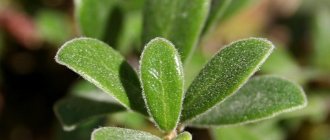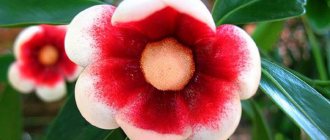Description of Yuzu
Yuzu is a citrus tree, a hybrid of mandarin and Ichan lemon, that grows wild. Outwardly, it looks like a small tree with several trunks up to 4 m high. The trunk and branches are covered with large thorns, which complicates the collection of fruits. The leaves are similar to lemon leaves, with a pleasant aroma.
Source: DepositphotosYuzu looks like a small unripe tangerine
Wild citrus is found in China, Tibet, and Korea. In Japan, it is cultivated as a fruit crop and is very popular in national cuisine. They even developed a decorative type of plant that features beautiful flowers.
The fruit itself is characterized by the following properties:
- looks like a tangerine weighing no more than 60 grams;
- the color of the tuberous peel varies from yellow-orange to lemon green;
- each fruit contains from 25 to 27 grains;
- the taste is more sour than lime and lemon, with a pine aroma.
This type of citrus fruit is distinguished by the fact that it can withstand frosts down to -9 °C. That is why it is grown in the northern regions of Korea and Japan. In the Land of the Rising Sun, a sweet variety of yuzu tree was cultivated for a long time, but unfavorable conditions destroyed the main plantations. Currently they are trying to resume them.
Summarize
- Yuzu is a fragrant citrus fruit that is distinguished by its sour taste and pleasant aroma, and numerous beneficial properties.
- Although research in humans is limited, its extracts and compounds have been associated with numerous beneficial effects, including improved brain and blood flow health, and anti-cancer effects.
- The pulp, juice and zest of yuzu can be included in many dishes such as dressings, condiments, teas and drinks. It turns out to be an excellent substitute for other citrus fruits.
Tags: Yuzu
- Related Posts
- Jackfruit: beneficial properties and contraindications
- Grapes: benefits and harm for the body of women and men
- Grapefruit: benefits and harm for the human body
« Previous entry
Useful properties and
uses of yuzu fruit
Yuzu is a fruit containing potassium, essential oils, fiber, fructose, pectin and citric acid. It is also rich in vitamin C. Can be used as a natural preservative. The pulp is not used in cooking. The peel and juice of both ripe and green fruits are considered valuable.
Yuzu citrus is most widely used in Japanese cuisine, where it is included in:
- miso soups;
- vinegar;
- uzu-koshu - hot sauce with chili peppers;
- marinades;
- salad dressings;
- jams;
- syrups;
- alcoholic and non-alcoholic drinks.
In Europe it is used in brewing, and in Korea as an ingredient for a tea drink. The peel of ripe lemons is used to make a fragrant and beneficial essential oil for the skin. In Japan, there is even a festival dedicated to the fruit.
If you were able to purchase this exotic citrus in the store, you can cut it into thin slices or strips and sprinkle with sugar. This way it can be stored for more than a month in the refrigerator. Add candied slices to black or green tea for taste, aroma and prevention of colds.
Related article: Vampi description and features
Japanese lemon is an attribute of Asian culinary culture, which is complex and multifaceted. It adds freshness and lightness to each dish, enriches it with a citrus-pine aroma. In Japan, there are several dozen dishes that require the inclusion of bitter and aromatic zest in the list of ingredients. In Europe it is almost never used, as it is considered inedible.
Links[ | ]
- “Yuzu Wisely — Japan's power citrus is a welcome cocktail alternative,” The Tasting Table, August 29, 2009
- Article about yuzu
- Article from The New York Times
- "Yuzu & Huckleberry: Flavors of the Moment", Janet Fletcher, San Francisco Chronicle
, May 31, 2006 - Articles about yuzu
- "Food Marketers Put Taro, Yuzu In Recipe For Growth", Sonia Reyes, Brandweek
, June 26, 2006 - David Karp, Secrets Behind Many Chefs' Not-So-Secret Ingredients." The New York Times
, December 3, 2003, Dining In, Dining Out/Style Desk, Section F, p. 12. - Kurokawa Yuko, The Yuko, a Native Japanese Citrus
Yuzu: properties
Calorie content: 53 kcal.
Energy value of the Yuzu product: Proteins: 0.81 g. Fats: 0.31 g. Carbohydrates: 11.54 g.
Yuzu is a plant of the Rutaceae family. We first learned about this fruit in China. You can meet it in Southeast Asia. The fruits appeared thanks to the natural selection of mandarin and Ichan lemon.
Externally, the fruits are very similar to small grapefruits, only their color varies from green to yellow. The fruit reaches up to 7.5 cm in diameter. The uneven peel has a strong citrus aroma. Yuzu has a more sour taste compared to lime.
In Japan, yuzu, due to its strong aroma and aromatic oil, is used in special oils. There is also an unusual tradition in this country: on the day of the winter solstice, they take a bath in which whole or cut fruits are placed. This procedure helps strengthen the body and relax.
Beneficial features
The yuzu fruit contains a large number of substances that have a beneficial effect on the functioning of the body as a whole . This citrus fruit contains ascorbic acid, which strengthens the immune system and increases the body's protective functions. Taking this into account, it is recommended to consume fruits during the period of active spread of colds. The fruit contains vitamin PP and potassium, which improves the activity of the cardiovascular system and strengthens the walls of blood vessels .
Yuzu also contains vitamin A, which has a beneficial effect on vision and helps get rid of some eye diseases. The fruit contains calcium, which strengthens teeth, bones, nails and hair. Thanks to B vitamins, the activity of the central and peripheral nervous system is normalized .
Yuzu is a low-calorie product, which means the fruits can be consumed during weight loss, as well as for people with obesity and atherosclerosis .
Use in cosmetology
The juice and essential oil of this citrus fruit are widely used for cosmetic purposes. They help with sagging skin, as they improve its tone. You can use preparations based on them for combination, dry and aging skin. In addition, yuzu helps whiten freckles and age spots. Another product based on this citrus fruit can be used for hardening of the skin on the elbows, knees and feet. The extract of this fruit is also included in products that are aimed at combating cellulite, as they stimulate blood flow.
Article on the topic: Hawthorn cockspur description and features
Use in cooking
Yuzu is widely used in oriental cuisines. For example, in Japan, zest is used to decorate dishes and in various sauces. They also drink juice, liquor, wine and other drinks. In addition, this citrus is included in the recipes of many Japanese desserts.
Yuzu juice is added to marinades, sauces, dressings, vinegar, etc. The fruits are also used to make jams, marmalades and preserves.
Yuzu benefits and treatment
The benefits of yuzu are widely used in traditional medicine recipes. For example, tea is made from the zest, which is recommended to be consumed during colds. Yuzu fruit is used as a means to stimulate the digestive and circulatory system.
Yuzu peel is considered to be an excellent antidepressant, which helps relieve nervous tension and tones the entire body. Tinctures based on this citrus fruit are used to relieve pain from arthritis, rheumatism, etc. Essential oil can be used as an antimicrobial and antifungal agent.
Harm of yuzu and contraindications
Yuzu can cause harm to people with individual intolerance to the product. Do not overuse the product; the daily dose is no more than 200 g. Otherwise, allergies, itching, hives and swelling may occur. Contraindications to the use of this citrus fruit are for people with ulcers, gastritis and pancreatitis. Fruit should be excluded from the diet in case of hepatitis and cholecystitis.
Notes[ | ]
- For the convention of indicating the class of dicotyledons as a superior taxon for the group of plants described in this article, see the section “APG Systems” of the article “Dicotyledons”.
- The Plant List: Citrus junos
- yuzu
- The Yuko, a Native Japanese Citrus – The Tokyo Foundation
- 柚子サワー | ホームクッキング【キッコーマン】
- Archived copy (unspecified)
. Access date: February 24, 2007. Archived November 15, 2006. - (undefined)
. Date of access: February 24, 2007. September 28, 2007. - YUZU & HUCKLEBERRY / FLAVORS OF THE MOMENT / How these and other obscure ingredients end up on so many Bay Area menus
- The Secrets Behind Many Chefs and #146 - Not-So-Secret Ingredient - NYTimes.com
- Ontstaan iKi bier
- https://www.sinebrychoff.fi/page.php?page_id=189&id=380
Yuzu or yuzu – Japanese lemon
Yuzu is a hybrid of Ichang papeda and mandarin. This fruit has been known since the time of Confucius. The homeland of yuzu (yuzu) is China. It is known that its popularity came in the 7th–8th centuries, when it came to Japan thanks to Buddhist monks. Today it grows wild in Korea, Tibet, and central China. It is also called yuzu or yunos.
Yuzu is a small shrub or tree, its height reaches four meters, its branches have numerous large thorns. It is characterized by frost resistance - it can withstand even 9-degree frost. Other citrus fruits can be grafted onto yuzu.
“Japanese lemon” is somewhat reminiscent of a tangerine, however, its peel is rough with an average thickness of 3.9 mm, and the color ranges from golden yellow to dark green, depending on how ripe it is. The diameter of the yuzu fruit is 7.5 cm, the weight of one fruit is on average 52 g, which contains an average of 27 seeds.
The variety of yuzu or yuzu with a bumpy rind is called "shishi yuzu", which means "lion-like".
These fruits taste more sour than limes and lemons (read about the beneficial properties of common lemon). The aroma is slightly tart, you can catch shades of pine and flowers. The Japanese symbolize this fruit with optimism, inspiration and prosperity.
Composition of yuzu
The peel of the fruit contains all types of sugars (sucrose, fructose, glucose), fiber, pectin, nitrogenous substances, citric acid (4.5%), glycosides, essential oils.
Article on the topic: Damson description and features
Like all citrus fruits, yuzu contains large amounts of vitamin C (40 mg), which maintains health and strengthens the immune system against colds. It contains a lot of vitamin PP and potassium, which have a beneficial effect on the cardiovascular system as a whole and strengthen the walls of blood vessels. It also contains vitamin A (beneficial for the eyes), calcium and phosphorus salts (for nails, bones, teeth, hair), vitamin B (to support the functioning of the central and peripheral nervous system).
Useful properties of yuzu
The Japanese's favorite seasonings are the juice and the peel of the fruit itself. Yuzu zest is pureed into miso soups, and the juice is added to marinades and sauces. Salad dressings, vinegar, non-alcoholic and alcoholic drinks are made from the zest and juice.
The fruit is used in making jam, marmalade and preserves.
The green fruits are used to make spicy yuzu-koshu (yuzukosho) - a paste made from the peel of unripe Japanese tangerines, hot chili peppers and sea salt.
Syrups from the fruit are a good remedy for treating colds. In general, eating yuzu helps stimulate the digestive and circulatory systems.
Where else has the Japanese lemon yuzu been used?
In addition to cooking, he is involved in Toji, the winter solstice celebration in Japan. To get rid of the evil forces of winter, improve health and gain wealth, take baths with yuzu fruits or their peels, filled with hot water (the Japanese call such a bath “yuzu-yu”).
This choice was made for a reason. “Japanese lemon” helps relieve nervous tension and fatigue, makes the skin soft and elastic, and lifts your spirits. Tinctures and essential oils are made from it, traditionally used during massage and rubbing for rheumatism, arthritis and other pain.
Ornamental "Japanese lemon": The Japanese call it "Hana Yuzu", it is grown not for its fruit, but for its beautiful flowers.
Japanese lemon juice, zest and oil are directly used in perfumery. Most often, the fresh aroma of yuzu lemon peel can be found in the top notes.











